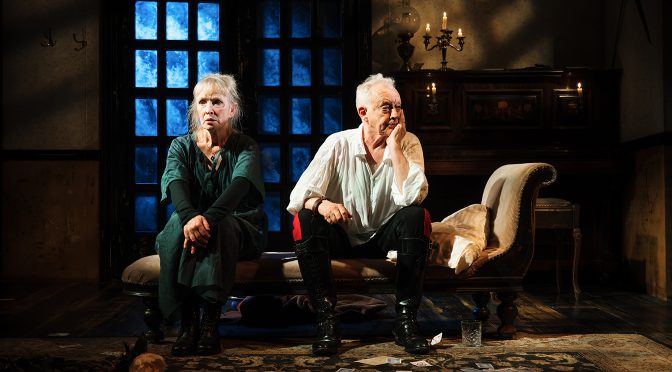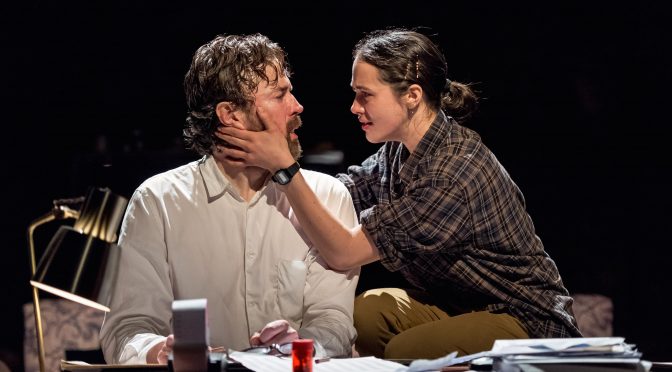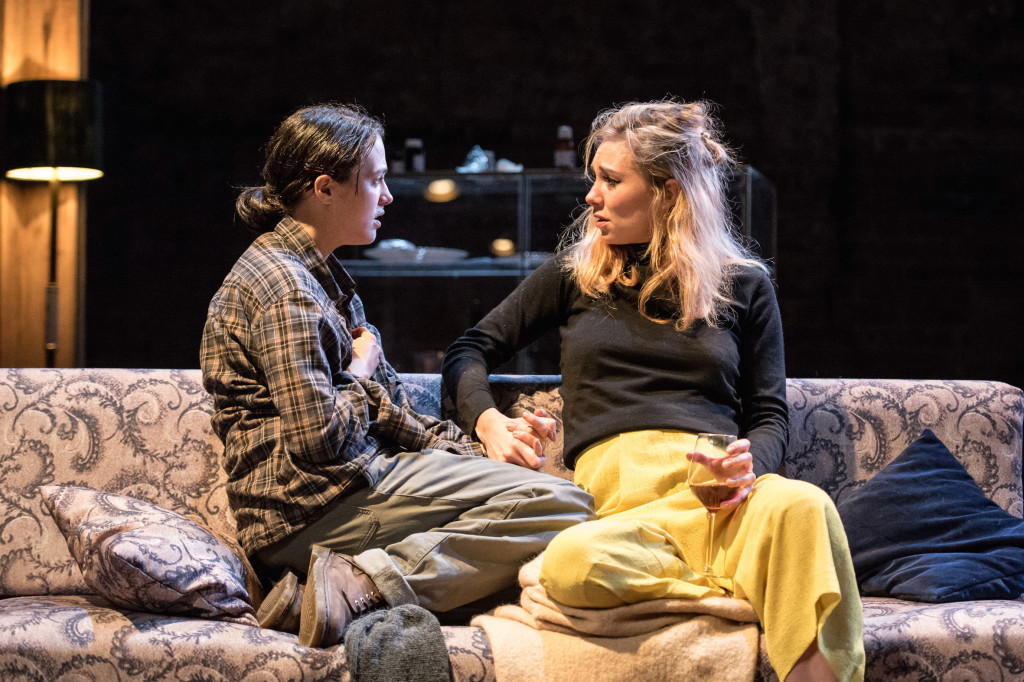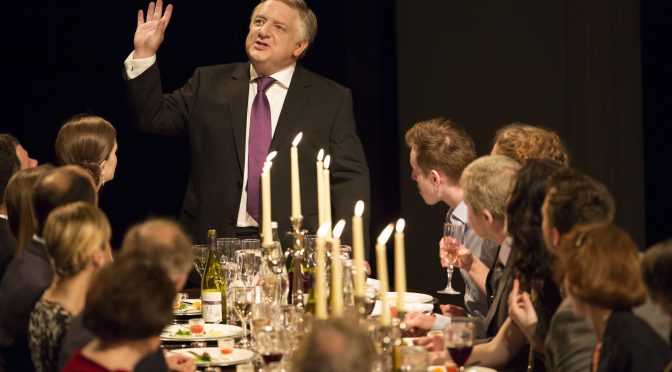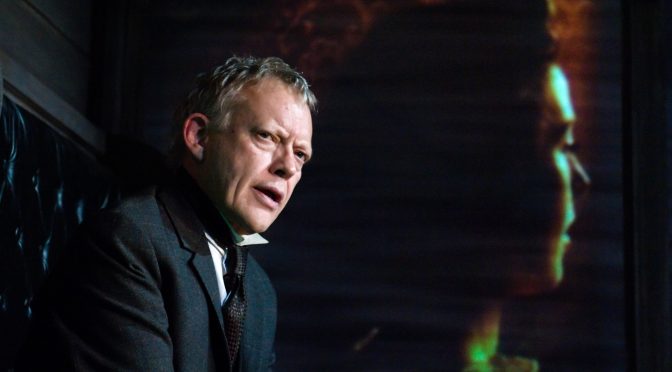Rebecca Lenkiewicz’s new version of August Strindberg’s play about mortality and marriage is terse and startling. The warring couple we watch torment each other are more than mouthpieces for speculation about the meaning of life – they are entertaining, too. And not shy of expletives. A view of existence as “funny as well as tragic” permeates so thoroughly that director Mehmet Ergen’s production intoxicates.
Lenkiewicz’s contribution is original. Her full-blown embrace of Strindberg’s humour is as dark as can be. Wondering whether to celebrate their Pearl anniversary, Alice and Edgar’s viciousness towards each other is bizarrely creative. Their venom gets laughs and contains a strange respect.
The degree of farce in Strindberg’s world view – the idea that life may have no meaning and is “preposterous – is highlighted. Ergen’s direction must deal with this absurdity, including the unsettling idea that we cannot quite believe what anyone says. But being discombobulated is part of Alice and Edgar’s game. Like the play, their psychodrama is a contest full of the unexpected.
One thing that doesn’t surprise is the fantastic performances from the leads. The always excellent Hilton McRae and Lindsay Duncan are superb. McRae makes his bullish Army man imposing, but so independent and spirited that he still impresses. Duncan shows incredible subtlety while delivering the bluntest lines – viciousness drips from her mouth. While we feel sympathy for her life with her abusive husband, we can see she is a “devil, too”. Both performers show incredible control as the “bile that infects the air” is delivered in a frequently calm, almost deadpan, manner that works as comedy while reflecting chilling desperation.
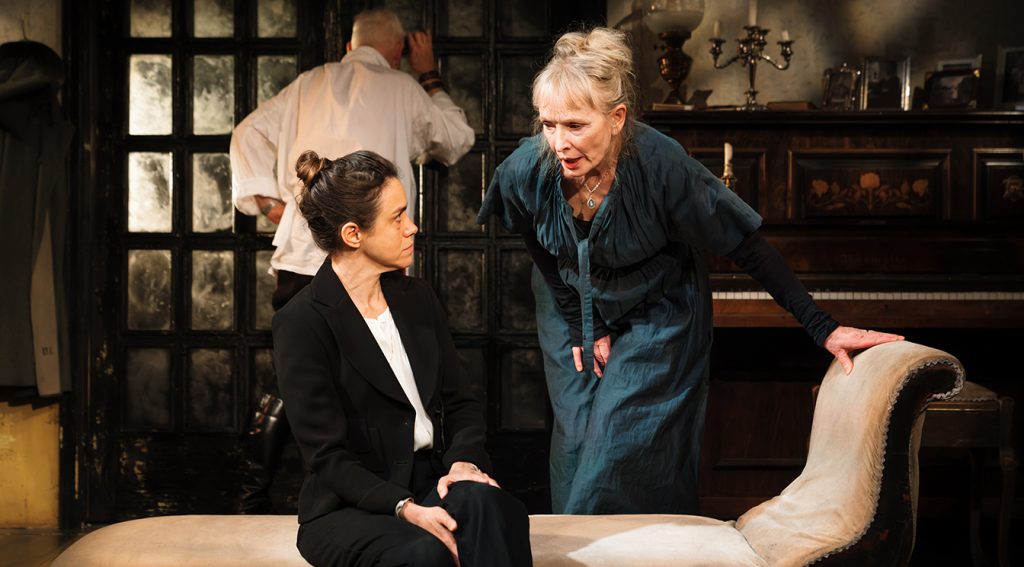
A third role in The Dance of Death, Alice’s cousin, is skilfully portrayed by Emily Bruni. It’s hard not to see the character as overshadowed by the those who play with her – especially since why Alice and Edgar use her is at the back of our minds more than her predicament. Nonetheless, the cruelty behind the play is continually enforced by what happens to Bruni’s character.
Resignation – about all life as much as its end – in The Dance of Death is active, a powerful force. There’s plenty of fantasy, including the deliberate misconstruction of narratives, capably enhanced by lighting and sound design from David Howe and Daniel Balfour respectively. The play should be impossibly grim, but with humour and glimpses of humanity there are surprisingly consoling moments. I wouldn’t want to get an invitation to that anniversary party – these guys are frightening company – but I think it will go ahead. As for getting a ticket to see the show – that is a must.
Until 23 July 2022
Photo by Alex Brenner

